From PC Technician to Mover: 9 CEOs Share Their First Job Experience
A person’s first job can have a significant impact on the rest of one’s career ends up taking them in a completely different direction; This is also true for most industry leaders
Calcalist spoke to nine of Israel’s top executives about their first job and its impact on the rest of their careers.
Moshe Mamrud
Owner and CEO of consumer electronics company Tadiran
First job: washing machine technician
In 1980, 27-year old Moshe Mamrud co-founded a washing machine lab in southern Israeli town Beer Sheva. Forty years later, he now owns and heads one of Israel’s largest consumer electronics and heating, ventilation, and air conditioning (HVAC) companies, Tadiran Holdings Ltd.
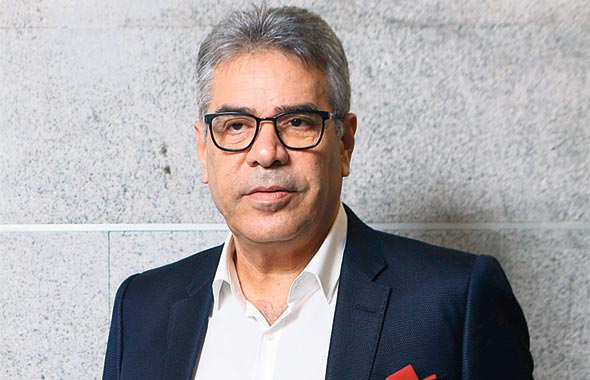 Moshe Mamrud. Photo: Amit Sha'al
Moshe Mamrud. Photo: Amit Sha'al “Israel’s economic situation at the time was not good, but consumer electronics were very popular so I decided to give it a go and set up a company with a childhood friend,” Mamrud said in a recent interview with Calcalist.
The turning point for Mamrud came at a client’s house where he estimated replacing a mechanical part at today’s equivalent of NIS 100 (approximately $29). The client opted to go to town and get a new machine. That is when Mamrud realized people don’t want to fix old things, they want an excuse to buy new ones.
"I realized I had good salesmanship skills and that people trusted me and asked for my recommendations, so I decided to be the one selling to them instead of just recommending,” he said. Mamrud then sold his part in the lab and set up an appliance store instead.
What Mamrud took with him from his first job is a sense of responsibility for everything he does. “If you do something good, that’s great, but when you mess up you need to own up to it and learn from your mistakes,” he said. “The second thing I learned is that providing good service is in itself a long term investment,” he added.
Yuval Tal
Founder and president of fintech company Payoneer
First job: mover
Fresh out of the Israeli army, a young Yuval Tal, now the founder and president of online payment company Payoneer Inc., went to New York to work for a large moving company. He still considers this to be one of the most exciting jobs he held throughout his career.
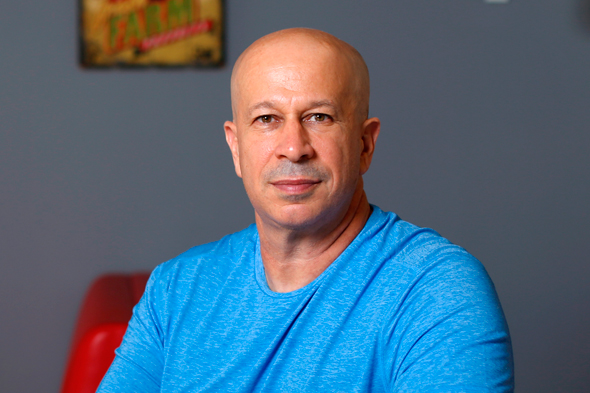 Yuval Tal. Photo: Ron Rosenfeld
Yuval Tal. Photo: Ron Rosenfeld “I was coming into people’s houses at very dramatic crossroads in their lives—people who got divorced, families emptying a recently deceased relative’s apartment or people who had a baby and needed a bigger place,” Tal said in a recent interview. “Moving is traumatic for most people and if you are not distant and you talk to them then it can be a very powerful cultural and human experience,” he added.
Once, while helping a state attorney move, he dropped a glass from a very expensive crystal glassware set. The glass broke into a thousand pieces but gave him the most important lesson of his career. As they both looked at the shards, realizing the incomplete set was now worthless, the attorney said two things: “I hope you did not cut yourself,” and “no worries, it was a gift from my inlaws,” Tal recalled. “I was really moved at that moment because the first thing he did was let me know that he saw me and that he was more concerned about me as a person than about the glass, and the second thing he did was to calm me down by telling a joke, he actually cared how I felt,” he said.
"This lesson that I learned as a mover at the age of 22, means that in every social or professional situation that I am in, I take responsibility for the way I make the person in front of me feel, be them an investor, a board member, or a colleague,” Tal said.
Anat Bogner
CEO of loungewear and undergarment retailer Delta
First job: saleswoman at an Esprit shop
Anat Bogner, currently the CEO of Israeli underwear, lingerie, and loungewear retailer Delta Galil Industries Ltd., got her first job during her senior year of high school, as a saleswoman at a local shop by global fashion brand Esprit. The fact that she had worked at a store and performed all the manual and physical labor she now requires her own employees to do, gave her a better understanding of the finer aspects of the sector, Bogner said in a recent interview.
 Anat Bogner. Photo: Orel Cohen
Anat Bogner. Photo: Orel Cohen During her military service, Bogner spent her weekends earning extra cash by selling cakes she made at home. “This was a very educational experience as it involved marketing, sales, and balancing revenues with expenses,” she said.
These experiences taught her it is imperative to remain professional, even if that means you have to wear a mask. “You have to be nice no matter what you are going through, customers expect it and so do my employees, it is what drives sales and helps people get through the workday,” she said.
Or Offer
Co-founder and CEO of market intelligence company SimilarWeb
First job: computer lab technician
At 14, Or Offer, who later co-founded digital market intelligence company SimilarWeb Ltd., took a summer job at a Jerusalem computer store. “At first, they made me a salesman and my job was to get parents to buy their kids a Comfy Keyboard, but once they saw sales weren’t my strong suit, they moved me to the PC lab in the back,” Offer said in a recent interview.
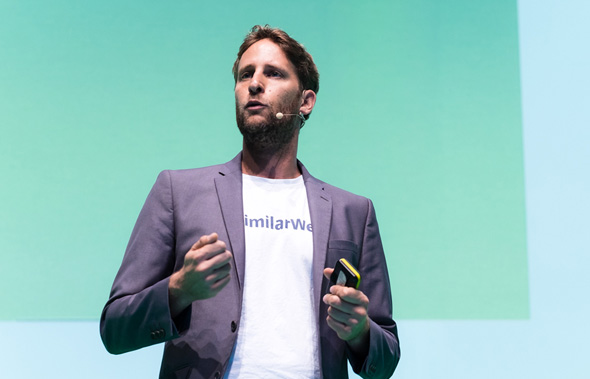 Or Offer. Photo: SimilarWeb
Or Offer. Photo: SimilarWeb
Offer said his dream had always been working with computers. After finishing his military service he got into the family jewelry business and digitized it. As he was setting up a website for the business he looked for similar sites. That search gave him the idea for a website that could find just that. This idea later matured into SimilarWeb, he said.
Working at the computer lab, Offer learned to get into details and rely on a lot of trial and error to get to the bottom of a particular issue, he said. From the family business, he learned about management, branding, and work processes. “It was a little factory, and that is essentially what a startup is as well,” he said.
Oren Sagi
General manager of Cisco Israel
First job: intern at a law firm
Oren Sagi, now the general manager of the Israel operation of Nasdaq-listed networking hardware company Cisco Systems Inc., started out as an intern and later a lawyer at a local firm. “This was my ticket to the corporate sector,” Sagi said in a recent interview. “I represented companies and realized I was more interested in what they were doing and decided to switch teams,” he said. The time was the start of the tech revolution of 1999 with the first substantial initial public offerings in the sector and at 28 years old, Sagi was excited to get into it.
 Oren Sagi. Photo: Orel Cohen
Oren Sagi. Photo: Orel Cohen From his first job, he learned to follow his heart and it was what led him to leave law, Sagi said. In tech, Sagi had to start from scratch again, as a salesman for networking company RAD-Bynet Group. He later founded business development startup Bright BRM, before joining Cisco in 2009.
Starting out in law gave Sagi tools to better understand clients and to properly prepare himself for every decision or discussion, he said. “Legal knowledge is an essential foundation for a manager’s job,” he added. Experience in negotiations, corporate law, competition law, and intellectual property gave Sagi a push when he converted to tech, he said.
“At the end of the day, a person is the sum of their own life experience, skills, education,” Sagi said. “Being a manager required good interpersonal skills, the ability to analyze different situations, and marketing experience, all mixed together,” he said.
Eli Soglowek
Chairman and CEO of meat product company Soglowek
First job: founder and CEO of an alternative meat company
Eli Soglowek’s career path is not typical to someone who ends up leading the family business. In fact, Soglowek started out far from the legacy of his family’s company Soglowek Naknik Nahariya Kosher Ltd., Israel’s top meat products manufacturer. In his first job, he started a company producing meatless nuggets, chicken wings, and burgers, under the brand VeggiePatch, in New Haven, Connecticut. Incorporated as FoodTech International Inc., Soglowek’s company was later acquired by Tivall (1993) Ltd., the meat substitute subsidiary of Israeli food manufacturer Osem Group.
 Eli Soglowek. Photo: PR
Eli Soglowek. Photo: PR The most important lesson Soglowek took from his first job was the importance of hard work, he said. “Setting up a startup, I worked around the clock, I was on the road five days a week, bringing our brand to every retailer in the U.S.,” Soglowek explained. In addition, you also need to be strong and resilient because things are never going to work out exactly the way you want them to, he said.
“Another thing I learned when I brought in a partner two and a half years in, is that I need good people around me that I can trust with the things I am not as good at,” Soglowek said. “You cannot do it all by yourself, you have to learn how to delegate.”
Avia Mizrachi-Magen
General manager of Fattal Hotels Israel
First job: hotel receptionist
When Avia Mizrachi-Magen wanted to save up for a big trip after finishing her military service, she started working at a hotel in southern Israeli resort town Eilat. “I never did take that trip, I fell in love and stayed in the hospitality industry,” she said in an interview. Mizrachi-Magen, now the general manager of the Israeli operation of hotel chain Fattal Hotels Ltd., a subsidiary of Tel Aviv-listed Fattal Holdings (1998) Ltd., said she loved working with people, the responsibility of sales, and making sure guests are satisfied.
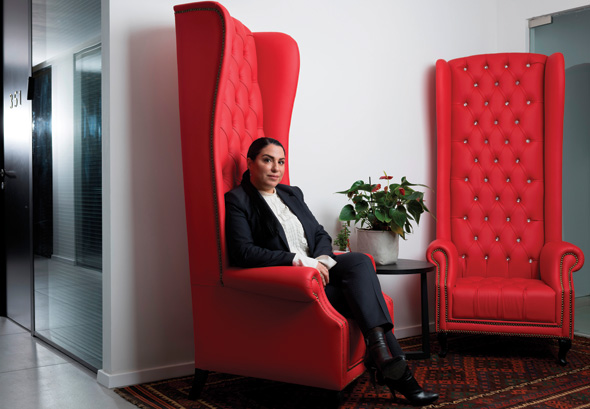 Avia Mizrachi-Magen. Photo: Jonathan Bloom
Avia Mizrachi-Magen. Photo: Jonathan Bloom From her first job, she learned to be attentive to clients’ needs and focus on long term relationships with them, Mizrachi-Magen said. “The next deal will come from giving your customer an experience that is a perfect fit for them.”
Aviram Suchard
General manager of Israel at consumer electronics company Philips
First job: sales representative for Johnson & Johnson
After finishing his master’s degree in financing, Aviram Suchard took his first meaningful position as a sales representative for the Israel office of pharma and medical device company Johnson & Johnson. “At my first job I was working around the clock, with headquarters in the U.S. and Europe, and with clients in Israel. In this sense, it is no different than my current job,” Suchard said in an interview. After working his way up at Johnson & Johnson, Suchard currently heads the Israel operation of Dutch multinational consumer electronics company Royal Philips NV.
Working as a sales rep taught Suchard the importance of professional ethics and of staying in the trenches with the client, he said. He also learned that he was only as good as the people that surrounded him, and that human capital is the most important thing for a company’s success, he added.
Tomer Dvir
Senior vice president at mobile insurance company Asurion
First job: computer salesman
Before founding tech support software company Soluto Ltd., which was later acquired by mobile insurance company Asurion LLC, Tomer Dvir started out at a company distributing personal computers, assembling them and teaching customers how to use their newly acquired gadgets.
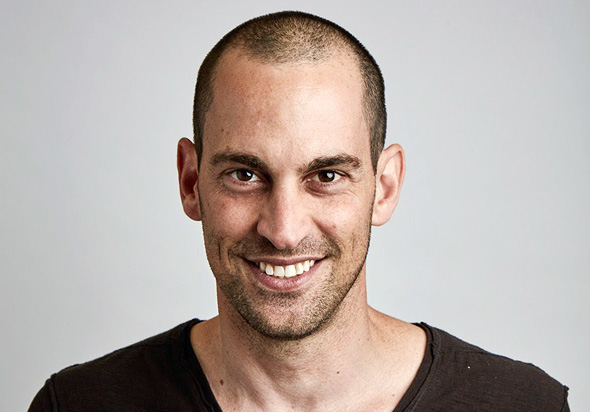 Tomer Dvir. Photo: Soluto
Tomer Dvir. Photo: Soluto Dvir’s parents got him his first computer at the age of six. “I fell in love with it and offered my services to the store where they bought it,” he said in an interview. “I spent school vacations and all the free time I had over there, instructing customers,” he said. Back then, in 1988, computers’ capabilities were still very limited but impressive nonetheless, he said. This was when Dvir first realized how big a gap there was between people’s desire for new technologies and their level of savviness. “Looking back, this is when Soluto was born with the aim of helping people maximize their use of available technologies,” he said.



